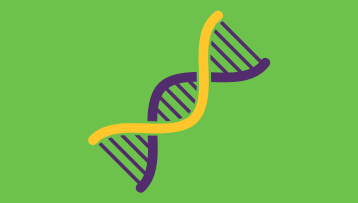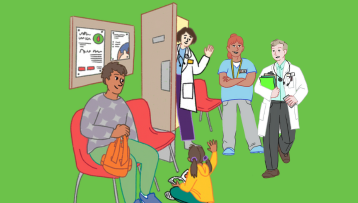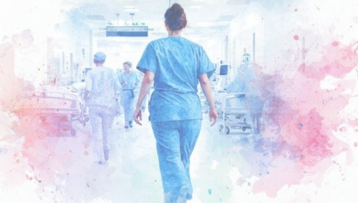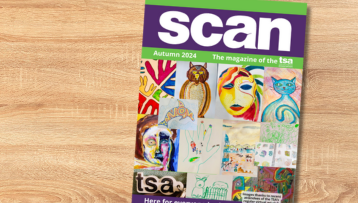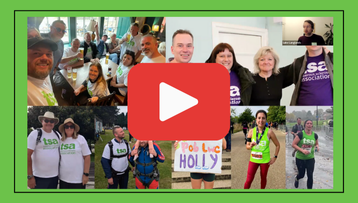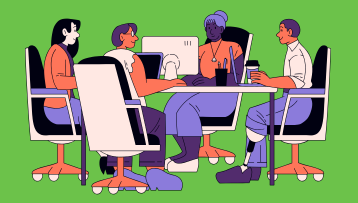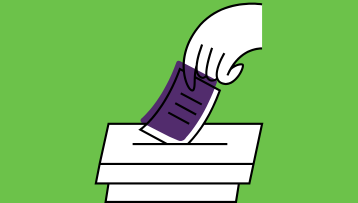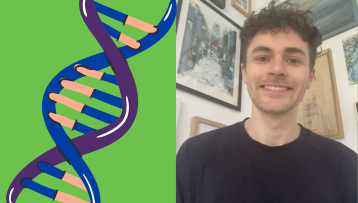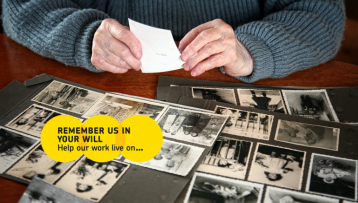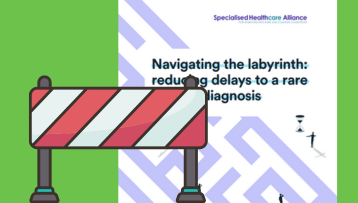Last updated: 16 December 2021. This page will continue to be updated.
.
It is normal to have have questions or feel anxious about how covid-19 may affect you or a loved one who lives with TSC.
The TSA is here for you, now more than ever. Below is an overview of information regarding TSC and covid-19, developed in-part with doctors from TSC clinics across the UK to ask for their advice.
Remember, the TSA support line is here to provide support on all TSC-related topics and you should never feel alone. You can contact our friendly team by phone (0808 801 070), email (support@tuberous-sclerosis.org) or post (to ‘Freepost TSA’).
If you fall into the group most at risk of the worst effects of covid-19, and have a positive covid-19 test, you may be eligible for at-home medicine to help you to get better (more information here).
There is no specific evidence that TSC makes you more likely than anyone else to catch covid-19, and TSC does not necessarily mean that you are at greater risk of developing severe symptoms. Currently there is no information to say that people with epilepsy are more severely affected than people without health conditions.
A small number of people living with TSC may be considered ‘clinically extremely vulnerable’ to the worst affects of covid-19 – if you or a loved one fall into this category, you or your doctor previously received a letter from the government to confirm this.
Information for people living with TSC
The NHS is advising that if you have any long-term health condition it is important to avoid catching and spreading coronavirus. You should pay attention to NHS advice on social distancing.
Information for families and carers
If you are supporting someone living with TSC who is severely affected by the condition, you should consider whether they are:
- Able to understand and follow advice about regular hand-washing and good hygiene to stay safe
- Likely to be able to tolerate intensive treatment if they become ill
If your loved one is unable to stay safe and unlikely to tolerate treatment if they become ill, then you should follow NHS advice on social distancing and be aware of NHS advice on self-isolation.
Mencap have produced an easy-read guide to help you talk to your loved one about covid-19.
We have spoken to expert clinicians working in NHS TSC clinics, and the TSA is not aware of any evidence suggesting that covid-19 vaccines are unsafe for those living with TSC.
If you are being treated with mTORs for AMLs or SEGAs, you may wish to speak to your clinician about whether to stop taking the drug for a week before and a week after being vaccinated. However, if you are offered a vaccine at short notice you should take it, and not delay.
If you are taking mTORs for LAM or epilepsy, then it is probably better not to take a break from treatment. But, it is important to speak to your clinician.
The bottom line is that you should speak to your GP or TSC clinician before any decisions are made about whether to stop or continue treatment alongside vaccination.
The UK Government strongly recommends that face coverings are worn in all public places where keeping your distance from others isn’t possible. However, someone living with TSC may find that wearing a mask is distressing or impossible due to how TSC affects them.
Depending on where you live in the UK, it might be mandatory to wear face masks in different public settings, such as on public transport, in hospitals or in shops. Guidance on where it is or isn’t mandatory to wear a face covering is changing regularly, with the latest guidance available here.
We know that not everyone in the TSC community is able to wear a face covering. If this includes you, you may wish to order a TSA ‘Face mask exempt’ badge to wear when you’re out and about (available here).
In situations where face masks are mandatory, exemptions and reasonable circumstances could mean that someone does not need to wear a face covering. This includes:
- Exemption based on age. In England children under 11, in Scotland children under 5, and in Northern Ireland – children under 13 are exempt
- Not being able to put on, wear or remove a face covering because of a physical or mental illness or disability
- If putting on, wearing or removing a face covering will cause the person severe distress
- Scotland’s guidance goes further than other nations, stating: Individual discretion should be applied in use of face coverings for children. For example, children with breathing difficulties or disabled children who would struggle to wear a face covering
- If a person relies on lip reading to communicate
- If a person needs to eat, drink or take medication for health reasons
For the TSC community, someone affected by TSC may therefore be exempt from wearing a face covering if it could cause severe mental and/or physical distress, such as due to living with autism, LAM or facial angiofibromas.
At the start of the pandemic, doctors in NHS TSC clinics advised most but not all of their patients to temporarily stop taking everolimus or sirolimus tablets or liquid. Now that we know more about covid-19 and TSC, many doctors in the NHS TSC clinics feel more confident in advising almost everyone to continue to take everolimus or sirolimus in tablet or liquid form at their prescribed doses.
Using sirolimus cream (sometimes called topical sirolimus) should not increase your risk of serious symptoms if you catch covid-19. You should be able to keep using the cream as normal.
- If you are taking everolimus or sirolimus for kidney angiomyolipomas (AMLs) or subependymal nodules (SEGAs), your doctor may recommend that you stop taking the drug for a short period if you are exposed to the virus or until you get better
- If you are taking everolimus or sirolimus for refractory epilepsy or LAM, your doctor will wish to discuss options with you, so that you can make an informed decision about whether to keep taking the medicine or stop taking it, taking into account your medical history and weighing up the respective risks from epilepsy or LAM and coronavirus
Covid-19 vaccinations and everolimus/sirolimus
- If you are being treated with everolimus or sirolimus for AMLs or SEGAs, you may wish to speak to your clinician about whether to stop taking the drug for a week before and a week after receiving a covid-19 vaccine. However, if you are offered a vaccine at short notice you should take it, and not delay
- If you are taking mTORs for LAM and are offered a covid-19 vaccine, then it is probably better not to take a break from treatment shortly before or after the vaccine. But, it is important to speak to your clinician
- If you are taking mTORs for LAM or epilepsy, then it is probably better not to take a break from treatment. But, it is important to speak to your clinician
The bottom line is that you should speak to your GP or TSC clinician before any decisions are made about whether to stop or continue treatment alongside vaccination.
Earlier in the pandemic, the TSA worked hard to share information regarding vaccine priority groups (available here). However, with the vast majority of people now eligible for an initial covid-19 vaccination, the focus is now on booster and third doses.
All information on covid-19 booster and third doses is available here.
The pandemic continues to affect all aspects of daily life, including at the TSA. Our amazing charity, committed to improving the lives of people affected by TSC across the UK, reacted quickly to the impact of covid-19 on our immediate priorities and financial security.
Thanks to some incredibly difficult decisions, including team restructuring and the temporary pause of our business plan (now resumed), the TSA pushed through the first wave of the covid-19 pandemic and was here for the TSC community right when we were needed more than ever.
The financial impact of covid-19 devastated all charities, including the TSA. We continue to work hard for the TSC community, and have proactive plans to ensure that we are here now and in the future. You can help to ensure that we will be here to provide help for today and a cure for tomorrow by donating today.
Make a one off or regular donation
£10 Can allow us to send a welcome pack to a family who has just received a life-changing TSC diagnosis, ensuring that they do not go through this time alone.
£25 Can help us develop materials that are included in our support services, flagship events or campaigns.
£50 Can provide laboratory equipment for a day’s research into the causes, symptoms, management or treatment of TSC.
To provide help for today and a cure for tomorrow













